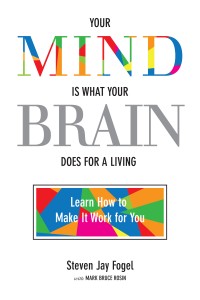Pause Your Machinery: Childhood Experiences

Stop and take a moment to “pause your machinery.” The concepts and techniques I present throughout my latest book, Your Mind Is What Your Brain Does for a Living, require mindfulness to learn and master, and this brief written exercise will give you the opportunity to rest, step outside the pattern of passive reading, and bring yourself into the present moment to reflect and see how the information I want to share with you can be integrated into your own life.
Keep your written answers, because they will be valuable for you to review and refer to later. You may want to buy a notebook or open a computer file so that you can keep all of your responses together in one place.
- Let’s begin this slightly longer section of Pause Your Machinery with an exercise to help you get additional insight into your early childhood experiences. Our goal is to look into the causes of your parents’ attunement or lack of attunement to you. Think mindfully about the factors that created your parents’ default programming and write a description of them. What were your grandparents like? How did they impact your mother and father? Were there major traumas in either or both of your parents’ early lives? If so, what were they?
- If your parents are alive, you may want to interview them in a mindful way, by which I mean to stay in the present, with curiosity, openness, acceptance, and love, and to listen without judgment and without shaming and blaming. If possible, you might also interview a sibling or a childhood friend of the relevant parent.
- When you have as much information as you can gather, write a description of your mother’s and your father’s youth experience, including the most impactful emotional events, the type of parenting each had, and the belief system each downloaded from his or her parents (or developed in reaction to his or her parents).
- Describe in writing your parents’ fears, how much you believe their fear(s) controlled them, and what you believe their Organizing Principles were. Describe the defenses they developed in response to the pain they experienced. Once you have described these factors, you have described your parents’ default programming.
- Now describe the way you think your mother’s and your father’s programming affected their parenting of you. Write down whether you feel that they were mindful, nurturing parents some or much of the time or that they were “wire monkey parents” functioning on automatic pilot most or all of the time.
- If you find yourself experiencing anger at them for areas in which you feel that they parented you inadequately, review your description of their most emotionally impactful childhood experiences and of how their programming affected their parenting of you. Does your knowledge of the traumas that created their programming make you feel that at some point you will be able to feel compassion and possibly empathy for them for what they experienced in childhood? Do you feel empathy for yourself for what you experienced as a child?
For the first part of this exercise, you’ve looked into the past for insight into how it is affecting the present. In the next part, you’ll reflect on the present for clues as to how you want to transform yourself today in order to create a more fulfilling tomorrow.
- Reflecting on the information about your parents that you’ve gathered in the first half of this Pause Your Machinery exercise, how do you feel your parents’ attunement or lack of attunement to you during your childhood affects you today? Do you feel that you’re functioning less than optimally in any of the first seven executive functions that are outcomes of secure parent-child attachment and of healthy development of the middle prefrontal cortex (regulating your body, attuned communication, emotional balance, response flexibility, insight, empathy, and modulating fear)? If so, list the areas in which you would like to function better.
- Next to each area you listed as being one in which you would like to function better, write a description of how you function in that area now and why you feel that it’s less than optimal. Then describe how you would like to function in that area.
- Compare this list with what you’ve written in response to earlier Pause Your Machinery exercises about ways you’ve acted on automatic pilot and how they’ve been dysfunctional (the exercises at the ends of Chapters 1 and 3); about your acts and what they’ve cost you (the exercise at the end of Chapter 7); and your Organizing Principles and the ways they’ve hurt you (the exercise at the end of Chapter 8). Do you see a relationship between your dysfunctional behaviors and beliefs and the executive function(s) that you would like to improve? If so, describe which area you feel that the beliefs and behavior are related to. For example, in problems with relationships—such as feeling that you’re being judged, shamed, and blamed and easily becoming activated and angry or feeling too fearful of losing a relationship to stand up for yourself—the problems may be related to attuned communication, emotional balance, response flexibility, insight, empathy, and modulating fear.
As with all your written exercises, keep what you’ve just written for reference. It will give you insight into your default programming and provide you with objectives for remodeling your brain to improve your functioning in the areas that will help you create a happier experience of life.
An excerpt from my recent book, Your Mind Is What Your Brain Does for a Living, now available at Amazon.
- 15 Dec, 2014
- Posted by Steve Fogel
- 0 Comments



COMMENTS